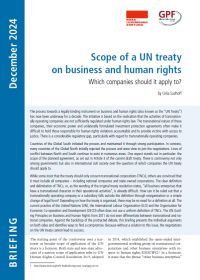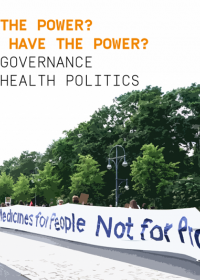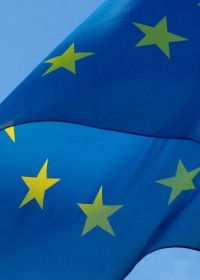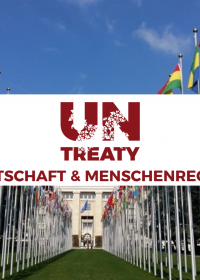
From December 16 to 20, 2024, 74 states came together at the United Nations (UN) Human Rights Council to negotiate an international legally binding instrument to regulate the activities of transnational corporations and other business enterprises (also known as a “UN Treaty”). Since the adoption of Resolution 26/9 by the UN Human Rights Council in 2014, the intergovernmental working group mandated to draft such a treaty has already met ten times. The meeting was postponed from mid-October to December due [...]





















